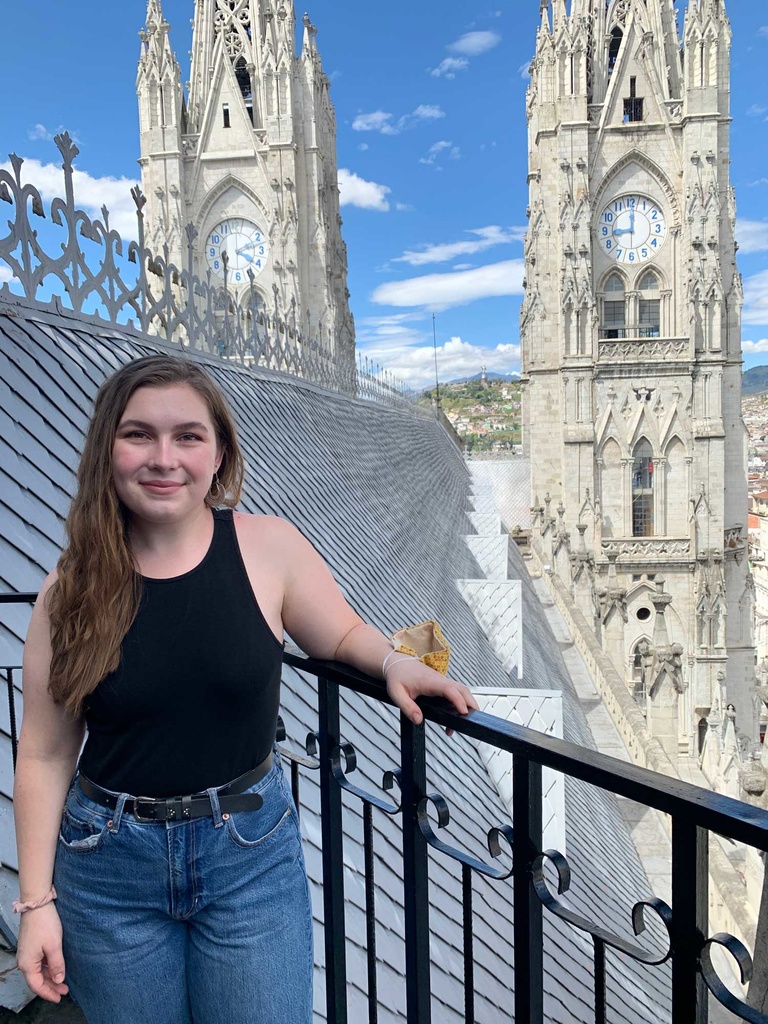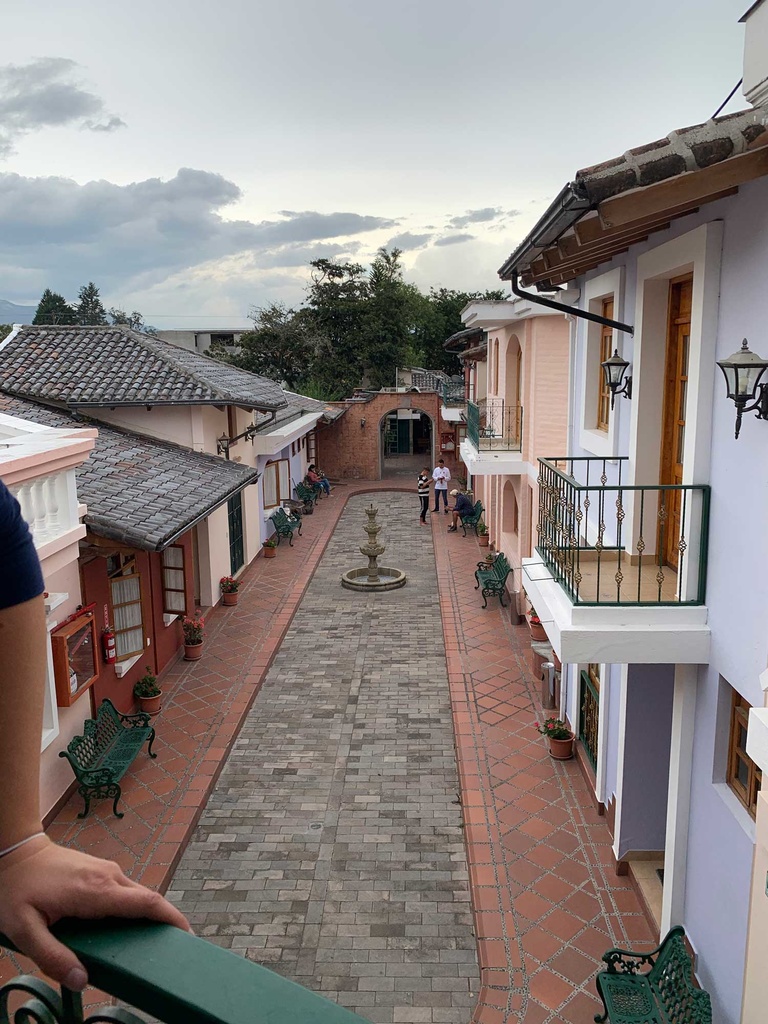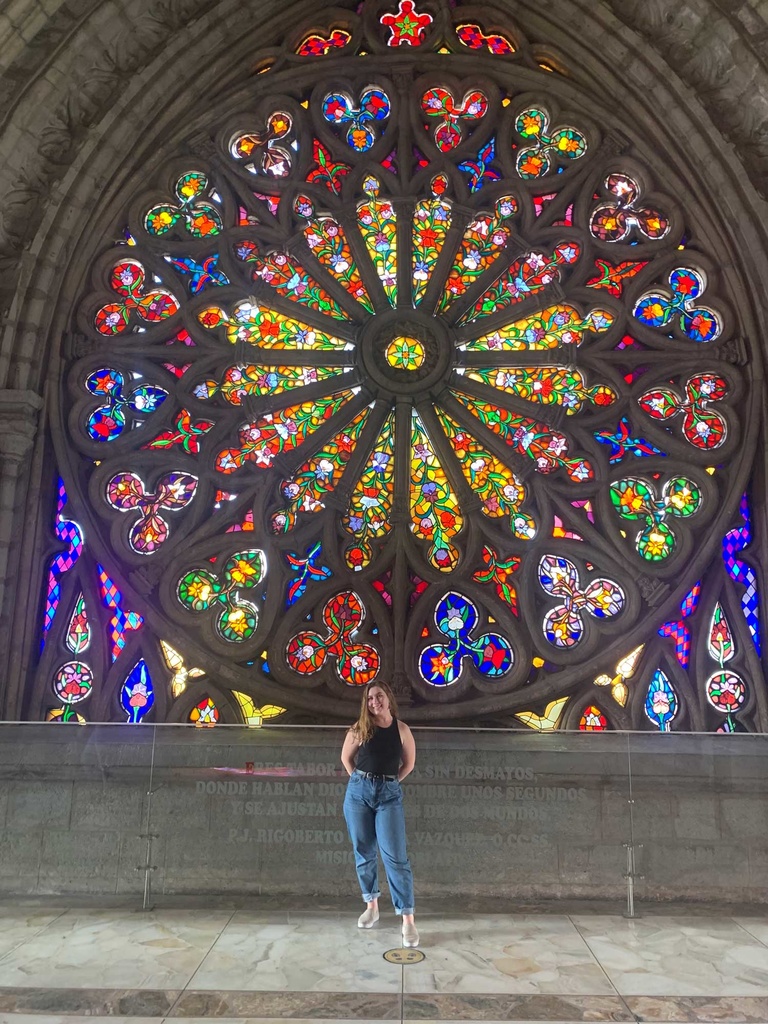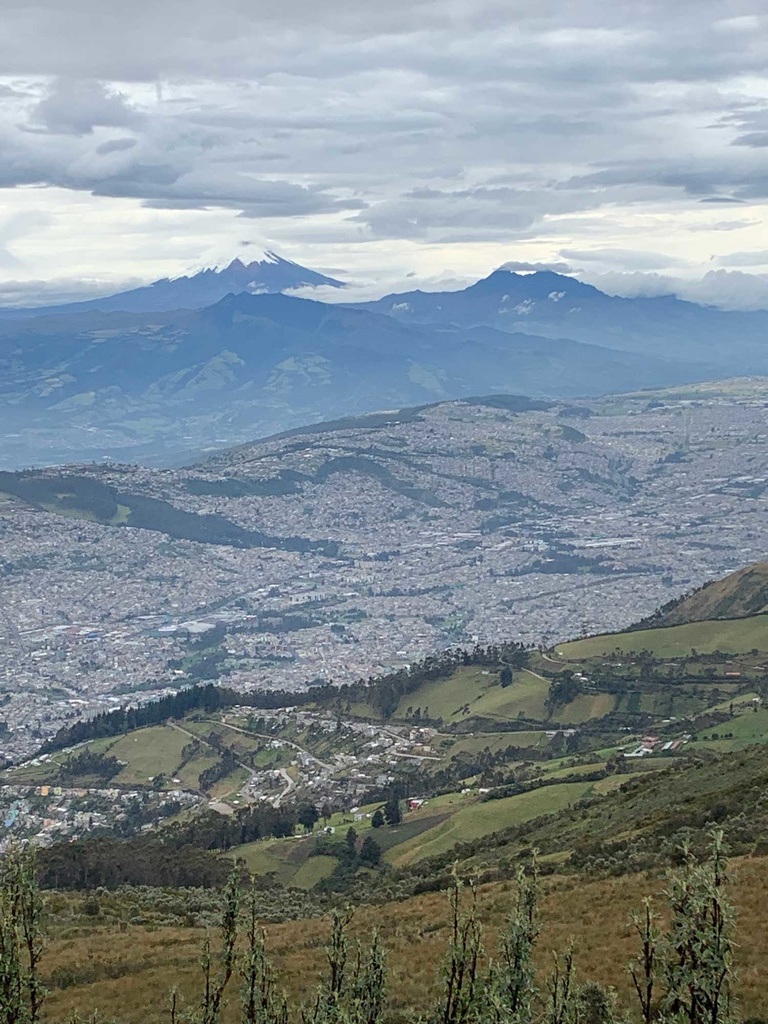
I have now been in Ecuador for two weeks. In this time, I have already experienced so many wonderful things, including meeting local friends, and admiring the art, culture, and landscape of Ecuador. Between our courses, excursions, and budding relationships with locals, we are constantly on-the-go. You soon realize how fleeting the days are here and want to make the most of every single one, which, when you think about it, is a good way to live life.
To begin, upon my arrival in Quito, I was questioned about a visa I did not have (and knew I did not need). This was my first time flying alone, and the thought of deportation before my trip even started only slightly concerned me! However, I was eventually admitted and met two of my new peers. We were ushered into a truck by the hostel staff – and when I say hostel, I don’t mean the dirty, confined, and cheap lodgings that word so often conjures in our minds, and we spent the first week there for orientation.
"You soon realize how fleeting the days are here and want to make the most of every single one, which, when you think about it, is a good way to live life."
Orientation consisted of a lot of paperwork, health and safety lectures, and a COVID-19 test. There were also moments when we were challenged to explore and observe certain aspects of Ecuadorian society and culture. For example, we were taken to different towns in small groups. My group went to Yaruquí, known for its art school and a Catholic fiesta thrown in September for the Virgin Mary’s birthday. After a day of exploring and chatting with locals when we could (or had the courage to!), we met Erica.
Erica is the owner of a wonderful bakery, or panadería, in Yaruquí. We decided to make one last stop before our driver arrived, and we ended up in her bakery. She, like many Ecuadorians, immediately welcomed us, especially after hearing we were students (a sure way to make most people interested). We met her assistants, Sofía and Diana. Sofía was a young woman and a student studying languages. You find that anyone who does speak English here wants to practice with you. Sofía practiced her English a bit while we spoke to Erica in Spanish. We asked how the pandemic affected the town and its businesses, and she responded that it was hard at first, but they bounced back.

Others are not so fortunate, and yet, in general, Ecuadorian people are welcoming and give what they have. As I was speaking to Erica, she placed two bags in my hands. I wasn’t sure, initially, if she just wanted to show me the product or if she was trying to make me buy them. Very soon, though, she told me they were a gift! We spoke more and bought unique breads we had never tried, and eventually headed back to the plaza. As we sat in the plaza, waiting for our driver, Erica chased us down after three blocks to exchange our telephone numbers, assuring us that if we need anything, we could call. I have yet to contact her, but I may take her up on her offer to teach us the popular sport “Ecua-volley,” as the locals seem to call it.
At the end of the week, we moved to our official lodgings in the town of Puembo. Another hostel, or hostería, that does not fit the mainstream idea. We feel so grateful to be in such a lovely place, but we feel guilty due to the poverty we see right outside the gate and the constant service we are given by the staff. These are the ethical issues we are dealing with and will continue to deal with throughout our stay here as students. How does one learn and ask questions without offending or belittling another? Dignity is all some people have, so how do you maintain that as an on-looker or researcher? We are privileged because we could pay for this program and leave when it is done, but some Ecuadorians are doing their best to simply survive…
"Recently, we spent the morning at the top of one of the many mountains of Quito by riding the cable cars of the Teleférico. From the high points, you can see the vast spread of the valley city – two million strong – mountains, and active volcanoes."
To continue, there have been so many wonderful experiences. We met Juan Diego through a student panel and he and his friends have accepted us all quickly, and they have been a great help with transportation, cultural exchange, and all-around fun. We have already hung out many times since meeting him just a short two weeks ago, including last night at a party thrown by Gina, a middle-aged woman whose bar/restaurant/café/ice cream shop has been a frequent destination for us as it is only three blocks away from where we are living. She, too, has welcomed us with open arms, evident by the private party she threw for no other reason other than hospitality, and to practice her English, and maybe to introduce her son to one of the many girls here!

We have had a few trips into Quito, as well, including the Historic District, or Centro Histórico. There you can see colonial architecture with balconies where young women would be sung to by potential suitors, the Basílica Nacional del Voto, the Plaza de Independencia, and so much more. We also had a chance to explore the Virgen del Panecillo, a monumental statue of the Virgin Mary said to protect Quito citizens, or quiteños. Recently, we spent the morning at the top of one of the many mountains of Quito by riding the cable cars of the Teleférico. From the high points, you can see the vast spread of the valley city – two million strong – mountains, and active volcanoes.

At this moment, I have the afternoon to myself to write this letter, finish my homework, and rest. Quito and its surrounding towns are bustling with life, including stray and “outside” dogs, old and young folks in the parks and plazas, and interesting traffic patterns (for example, people often give a short honk instead of yielding or stopping at intersections which acts as a polite, yet assertive warning to potential oncoming traffic), but it has already captivated me with its warmth and culture. And despite the beauty of the people and their culture, Ecuadorians face serious issues, including a major recession, migration due to the pandemic, quality and/or access to healthcare, and government and police corruption. These, and many other topics, we will be discussing and even experiencing to a degree throughout the semester.
University of Iowa student Kristin Vogel, an honors student and Spanish & anthropology major from Huxley, Iowa, is studying in Ecuador on the SIT: Development, Politics & Language in Ecuador program.